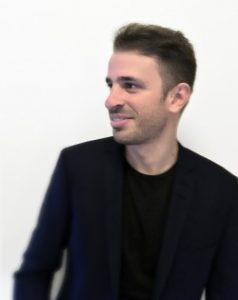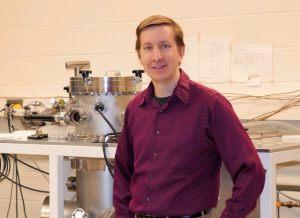Do you need more computing power to move your research and creativity forward? At the Fall 2019 Computing Colloquies, Daniele Profeta (Assistant Professor of Architecture) and Britton Plourde (Professor of Physics) will discuss how they leverage Syracuse University’s advanced computing resources to strengthen their work.
Each session will explore how campus computing resources help faculty tackle new and more complex computational tasks, increase the competitiveness of grant submissions and more. Attendees also will have the opportunity to connect with their fellow researchers and meet the Information Technology Services advanced computing staff. Information Technology Services hosts the sessions in collaboration with the Research Computing Advisory Council. CART services and other accommodations are available by request when registering to attend. Email researchcomputing@syr.edu to learn more.
 Daniele Profeta
Daniele Profeta
Tuesday, October 29. 12:00-1:30 p.m. (lunch provided)
Katzer Collaboratory, 347 Hinds Hall
Register by Tuesday, October 22.
Assistant Professor of Architecture Daniele Profeta is an Italian architect and designer. His work focuses on architecture and contemporary imaging technologies; digital surveying with photogrammetry and LiDAR scanning; and animation and digital storytelling.
Profeta has worked in internationa
lly renowned architecture offices on a variety of projects ranging from small-scale installations to international competitions, as well as large developments in the Middle East and in Asia. His current research explores the potential of digital mapping as a practice of world-building, one that combines heterogeneous forms of information to enhance the contemporary architectural discourse.
Britton Plourde
Tuesday, November 19. 12:00-1:30 p.m. (lunch provided)
Katzer Collaboratory, 347 Hinds Hall
Register by Tuesday, November 12.
Professor of Physics Britton Plourde and his research group are working on the development of microfabric
ated superconducting circuits for quantum information processing. Much of the group’s work involves qubits, which are systems that follow the laws of quantum mechanics. These laws enable qubits to exist in superpositions of their two states (zero and one), in contrast to digital bits in conventional computers that exist in a single state. Plourde says that superposition leads to the possibility of quantum algorithms with myriad applications.
“These algorithms can tackle certain problems that are impossible to solve on today’s most powerful supercomputers,” he explains. “Potential areas impacted by quantum information processing include pharmaceutical development, materials science and cryptography.”
